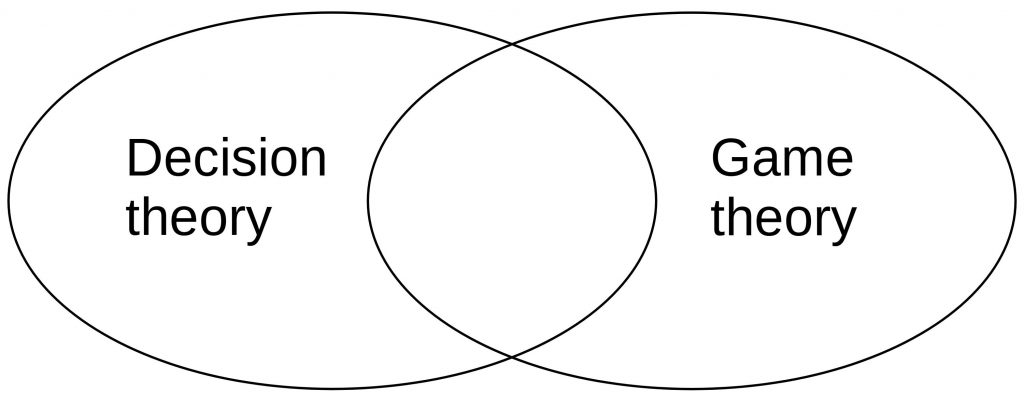What Is Game Theory?
Last Updated on 28. April 2023 by Martin Schuster
Game theory is a toolbox with tools rather than a single theory. These tools help you to analyze situations, make decisions, and forecast decisions of other actors. A decision in game theory is a situation where your best decision depends on another player’s decision. At the same time, this player also takes our considerations into account when thinking about his options. As a consequence, our decisions are interdependent.
Game theory has four purposes:
- Advice on how to decide in a certain situation.
- Forecast, how someone will decide in a certain situation.
- Explain why someone made a decision.
- Design mechanisms to obtain the desired outcome.
In order to analyze situations, we need to simplify most situations. This means we cut off unimportant things. In the end, we have a model.
Closely related to game theory is the decision theory. There, we analyze situations where our decision doesn’t influence others decisions.

In game theory, we make some important assumptions about the players.
- Perfect information: All players know the pay-offs of all other players in every decision constellation.
- The result (pay-off) depends on my decision and the decision of the other players.
- At the time of decision, no player can observe the decision of the other player. This could be modelled as simultaneous decisions.
- Players act rationally. A higher utility is valued more than a lower one.
- Utility can be displayed as a number.

 Register
Register Sign in
Sign in